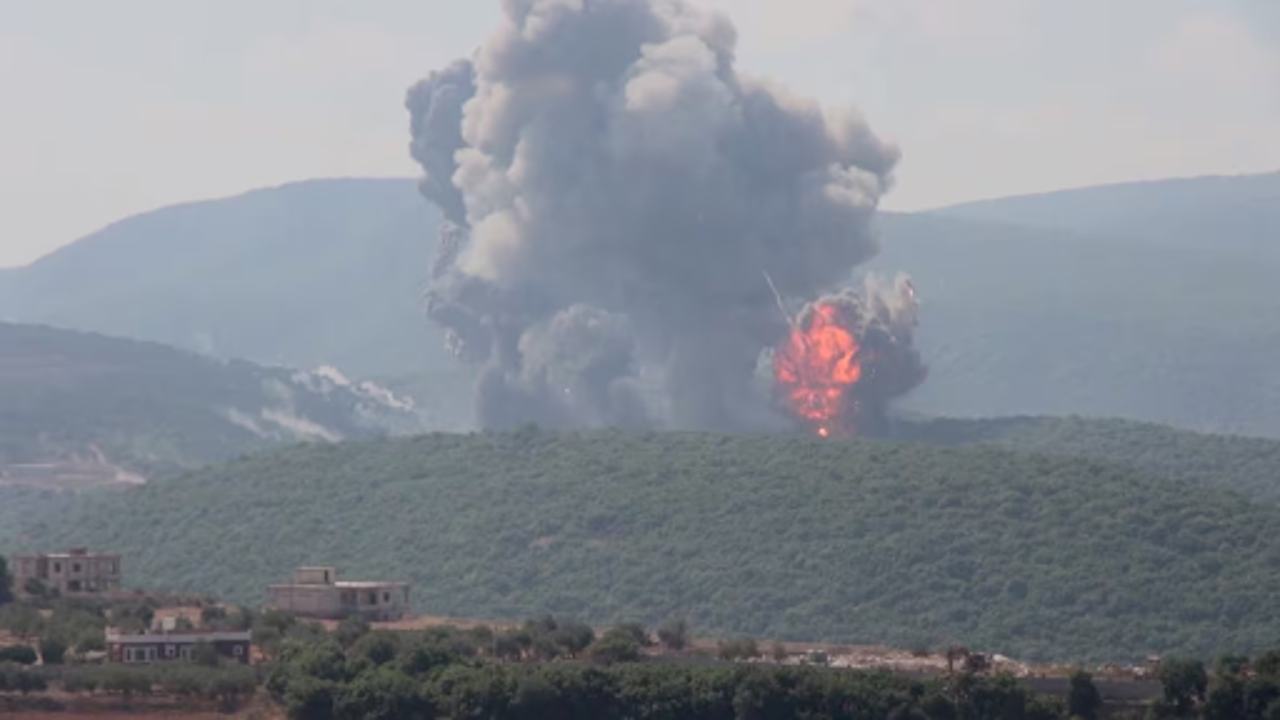
An explosion occurred in southern Lebanon on Sunday during ongoing clashes between Hezbollah and Israeli forces. The blast was captured in a video from Zibqin, Lebanon. Reuters
In the early hours of Sunday, Israel launched a series of airstrikes across southern Lebanon. The Israeli military stated that these strikes were preemptive measures aimed at preventing a significant Hezbollah attack. This aggressive response came after Hezbollah retaliated by firing hundreds of rockets and drones, seeking retribution for the recent death of a top commander, Fouad Shukur, in an Israeli airstrike in Beirut last month.
Despite the intensity of the cross-border exchanges, which included attacks on military and civilian targets, it does not appear to have sparked a full-scale war. The situation remains tense but controlled. Concurrently, Egypt is hosting high-level discussions to negotiate a ceasefire in the ongoing conflict between Israel and Hamas in Gaza, which has lasted for ten months. This diplomatic effort aims to ease regional tensions.
Israel's airstrikes targeted several locations in southern Lebanon, including a pharmacy, followed by additional attacks on people gathered near the initial strike sites. The Israeli military justified the airstrikes by claiming they were necessary to thwart a planned heavy rocket barrage by Hezbollah.
Hezbollah quickly responded with its own offensive, launching over 320 rockets and drones towards Israeli military positions. The group claimed this was retaliation for Shukur’s death and announced that its attacks were aimed at specific Israeli military targets and defence systems. By mid-morning, both sides had claimed that their strikes were directed solely at military objectives, with initial reports indicating at least three Hezbollah fighters were killed, and no casualties were reported on the Israeli side.
Israeli Prime Minister Benjamin Netanyahu stated that the airstrikes had neutralized thousands of rockets intended for northern Israel. He emphasized that Israel would continue its defensive actions to protect its citizens and maintain security.
This video screenshot shows explosions and projectiles over Israel’s northern border with Lebanon on Sunday morning. The Israeli military conducted preemptive airstrikes against Hezbollah, a militant group. Reuters
Air raid sirens were triggered across northern Israel, causing a temporary closure of Ben Gurion International Airport. The Home Front Command raised the alert level but later relaxed restrictions in most areas. Lt.-Col. Nadav Shoshani of the Israeli military reported that Hezbollah had aimed at northern and central Israel, but initial assessments showed minimal damage in Israel. He confirmed that about 100 Israeli aircraft were involved in the airstrikes.
The exchanges are part of a larger, ongoing conflict involving Hezbollah and Israel, which has intensified since the outbreak of the Gaza war in October 2023. Hezbollah, which has significantly expanded its military capabilities since the 2006 conflict with Israel, now possesses a large arsenal of rockets and advanced drones.
Hezbollah leader Hassan Nasrallah is expected to address the situation in a forthcoming speech. Meanwhile, Lebanon’s caretaker Economy Minister Amin Salam expressed cautious optimism about a potential de-escalation, noting that both sides have confirmed the completion of their military operations for the day.
In the broader context, the U.S. and international mediators view a ceasefire in Gaza as crucial for preventing further escalation. High-profile talks in Cairo aim to address the conflict and facilitate negotiations, with U.S. and Israeli officials closely involved.















